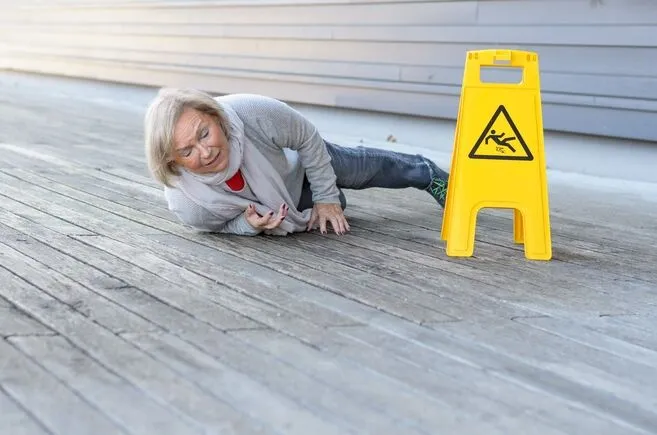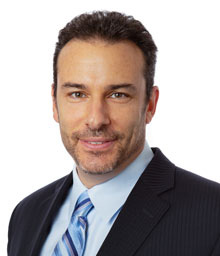- Home
- Our Firm
- Practice Areas
- Bicycle Accidents
- New York City Car Accident Lawyer
- New York City Car Accident Checklist
- New York City Car Accident Insurance Lawyer
- New York City Common Car Accident Injuries
- New York City Common Causes of Car Accidents
- Aggressive Driving
- New York City Distracted Driving Lawyer
- New York City Fatigued Driver Lawyer
- Drunk Driving
- New York City Reckless Driving Accident Lawyer
- New York City Road Construction Accident Lawyer
- New York City Texting While Driving Lawyer
- Traffic Signal Rules
- Vehicle Defects
- New York City Weather and Road Condition Lawyer
- New York Car Accident Fault Laws
- New York City Types of Car Accidents
- Hit-and-Run Accident
- Fatal Car Accident
- Maximum Compensation for Car Accident
- New York City Multi-Vehicle Accident Lawyer
- New York City Rear-End Accident Lawyer
- Speeding Accident
- Construction Accidents
- Amputations & Limb Loss
- Burns and Construction Accidents
- Construction Wrongful Death
- Crane and Vehicular Accidents
- Construction Negligence
- Construction Slip and Fall Accidents
- Construction Accident Legal Guide
- Construction Site Safety Code
- Cranes & Derricks Safety Standards
- Excavation Safety Standards
- Fall Protection Standards
- General Construction Safety and Health Standards
- High-Risk Construction Oversight
- New York Labor Laws
- New Protocols for Existing and New Concrete-Embedded Fall Arresting Systems
- Personal Protective and Life Saving Equipment Standards
- Scaffold & Sidewalk Shed Safety
- Scaffold Safety Standards
- Steel Construction Safety Standards
- Construction Zone Accidents
- Dangerous Construction Trades & Professions
- Electrocution Accidents
- Eye Injury
- Failure to Provide Safety Equipment
- Falling Objects Injuries
- Falls from Elevated Work Surfaces
- Fracture Injury
- Forklift Accidents
- Knee & Ankle Injuries
- Knee & Shoulder Injury
- Heavy Equipment Accidents
- Spinal Cord Injury
- Scaffolding Accidents
- Paralysis Injury
- PTSD and Construction Accidents
- Toxic Exposure Injury
- Trench Collapse Accidents
- Traumatic Brain Injury
- Undocumented Construction Worker Injuries
- Workplace Construction FAQ’s
- Dog Bite
- E-Bike Accident
- Lead Poisoning
- Motorcycle Accidents
- Onewheel Accident
- Pedestrian Accidents
- Personal Injury
- New York City Premises Liability Lawyer
- Rideshare Accident
- Slip and Fall
- Airport Falls
- Cluttered Aisle Falls
- Cracked or Damaged Floor Tiles
- Common Injuries
- Elevator and Escalator Falls
- Exposed Cords or Wires
- Grocery Store Falls
- Aldi Grocery Store Slip And Fall
- Associated Supermarkets
- Big Deal Supermarket
- CTown Supermarkets
- Compare Foods Supermarket
- Good N’ Natural Organic Market
- Fairway Market
- Fine Fare Supermarkets
- Food Bazaar Supermarket
- Gristedes Supermarkets
- Key Food Stores
- Met Foodmarkets
- Pioneer Supermarkets
- Shop Fair Supermarket
- Shoprite Of Gateway Center
- Stop & Shop
- Superfresh Store
- Trader Joe’s
- Wegmans
- Western Beef Supermarket
- Whole Foods
- Ice Slip and Falls
- Inadequate Lighting Accidents
- Inadequate or Missing Warning Signs Slip and Fall
- Leaves or Debris on Walkways
- Loose or Missing Handrails
- Loose and Uneven Flooring
- Missing Floor Mats Or Runners
- NY Property Owner Responsibility
- Parking Lot & Sidewalk Falls
- Potholes Slip and Fall
- Public Park Falls
- Public Transportation Falls
- Sudden Changes in Floor Elevation
- Snowstorm Falls
- Stairway Falls
- Slip and Fall Legal Guide
- Slip And Fall Settlements
- Slip And Fall FAQs
- Slippery Floors Accidents
- Statute of Limitations
- Transitions from One Type of Floor to Another
- Torn Carpet Slip and Falls
- New York City Pregnant Slip and Fall Lawyer
- While Visiting New York
- Why Are Slip and Fall Cases So Hard to Win?
- Workplace Falls
- Trip and Fall
- Truck Accidents
- Traumatic Brain Injury
- Wrongful Death
- See All Legal Services
- Cities We Serve
- Client Testimonials
- Contact Us
- Blog
- FREE CASE EVALUATION (212) 279-2000

A recent report in The New York Times says the potential for an elderly person to die from a slip and fall accident has increased in recent years. More people are living well into their 80s and 90s and many seniors are taking medications that can adversely affect balance.
While you can’t change your age, you can take steps to prevent falls.
How Many Seniors Die from Falls?
The New York Times report refers to research in the medical journal JAMA that found that for people over 75, the rate of mortality from falls more than doubled from 2000 to 2016. In real numbers, that’s 8,613 deaths from falls among Americans 75 years old or older in 2000 and 25,189 in 2016.
As people grow older, the rate at which they suffer fatal injuries in falls increases. Seniors 75 to 79 years old in 2016 died from fall accidents at a rate of 42.1 deaths per 100,000 people in the age group, while those who were 95 years old or older died at a rate of 590.7 fatalities per 100,000.
For all U.S. residents age 75 or older, the rate of accidental death in slip and fall accidents was 52 per 100,000 people in 2000 and 111 per 100,000 in 2016.
Elizabeth Burns, a health scientist at the Centers for Disease Control and Prevention (CDC) and an author of the study, said that women are more likely to fall than men, but men are more likely to die as a result of a fall.
Burns said the most likely reason for more fatal falls among the elderly is that people are living longer with health conditions that they might have died from in the past. She also reiterated the impact of the elderly’s use of medications that add to the risk of falling.
How Do Falls Affect the Elderly?
As we age, we lose bone density and muscle mass. The loss of muscle makes us less steady on our feet and the loss of bone density makes bones more brittle and susceptible to breaking in a fall.
The CDC says more than one out of four older people – age 65 or older in CDC statistics – falls each year, though most don’t see a doctor. One out of five falls causes a serious injury, and falls are the leading cause of fatal injury and nonfatal trauma-related hospital admissions among older adults. Once an elderly adult has fallen, his or her chance of falling again doubles.
Falls can cause broken bones such as wrist, arm, ankle, and hip fractures. Falls are the most common cause of traumatic brain injuries (TBIs).
Almost all hip fractures (95%) happen in falls. The loss of mobility and independence as a result of a hip fracture is a common reason that older adults enter nursing homes. A 2017 study in the Journal of Internal Medicine showed that elderly hip fracture patients have an elevated risk of dying in the first year after the fracture that is three times what others their age face.
Head injuries suffered in falls can also be very serious, especially if the person is taking certain medicines such as blood thinners. These medications may cause profuse bleeding after a fall. A TBI suffered in a fall can also lead to disability or an untimely death.
Elderly people who fall often become afraid of falling again. This fear may cause them to become less active in general. But as they become less active, they become weaker, which increases their chances of falling.
Medication, the Elderly, and Slip and Fall Accidents
Medications such as sedatives (Valium and Xanax), antidepressants (Prozac, Zoloft), and some over-the-counter medicines (Benadryl and Advil PM) can affect how steady a person is on his or her feet.
Doctors writing for the Medscape website say the fact that many elderly patients are prescribed multiple medications increases their risk of falls.
Sedatives/hypnotics are significantly associated with fall risk, and antidepressants cause the highest risk of falls among seniors. Other medications associated with an increased fall risk include diuretics, nonsteroidal anti-inflammatory drugs (NSAIDs), and antihypertensives.
Other factors associated with a greater risk of falls and injury in seniors include:
- Arthritis
- Previous fractures (weakened bones)
- Vitamin D deficiency (anemia, neuropathy)
- Diabetes
- Dementia
- Impaired vision/hearing
- Recent hospital discharge
- Obesity
- Poor sleep/obstructive sleep apnea
- Urinary incontinence (i.e., hurrying to the bathroom)
- Foot pain or poor footwear.
How Can the Elderly Prevent Falls?
Doctors recommend that seniors who are able do regular exercise to strengthen their core and improve balance to reduce the risk of a fall. The CDC suggests tai chi, a low-impact, slow-movement Chinese martial arts exercise that increases flexibility and balance and reduces stress and anxiety. It’s easy to find tai chi groups in the New York area.
You can also protect yourself or a loved one by checking your home for trip, slip and fall hazards and correcting them, such as:
- Broken or uneven steps
- High thresholds
- Throw rugs
- Extension cords
- Clutter
- Poor lighting, including the lack of nightlights
- Lack of grab bars in the bathroom or railings on both sides of stairs.
Medscape says most falls among the elderly occur in the bathroom, followed by the bedroom, kitchen and living room. Problems are often caused by the transition between carpets and rugs or bare floors and rugs or carpet.
Seniors are also at risk of tripping and falling when they hurry, whether to go to the bathroom or to answer the doorbell or the phone.
Your doctor or healthcare provider can evaluate your risk for falling and recommend specific things you should do.
In nursing homes and hospitals, staff should follow fall prevention protocols for residents and patients at risk of falling due to medical issues. Nursing home residents and hospital patients face a secondary risk of falls in institutional settings due to wet floors, clutter, dangling tubing, and bedside equipment.
As New York slip and fall accident lawyers, we at David Resnick & Associates, P.C., frequently provide legal representation to people who have been injured in falls as well as families who have lost loved ones due to fall accidents. Falls often happen because a property owner has failed to deal with a hazard on their premises. While an elderly person is more likely to die from a slip and fall accident, we know from experience that slip and fall injuries and death happen to people of all ages.
No matter your age, you can benefit from understanding fall accidents and the strategies for preventing them.
What Our Clients Say
RECENT NYC SLIP & FALL LAWSUIT VERDICTS
$2 MILLION
Fractured Leg
$1.9 MILLION
Car Accident Settlement
$1.75 MILLION
Slip And Fall Settlement
LATEST BLOG POSTS
November 28, 2024
Trip and Fall Accidents on NYC Construction Sites: Who Can Be Held Liable?
Construction sites are among the most hazardous environments in New York City, often riddled with uneven surfaces, debris, and other…
November 21, 2024
Proving Negligence in New York Slip and Fall Injury Claims: What You Need to Know
Slip and fall accidents can happen instantly but leave lasting physical, emotional, and financial impacts. For victims in New York, successfully…
November 14, 2024
How Long Does It Take to Settle a Slip and Fall Case in NYC?
Slip and fall accidents can result in serious injuries, costly medical bills, and unexpected disruptions to your life. If you’ve been…
Get In Touch
Get Your Free Consultation✖






